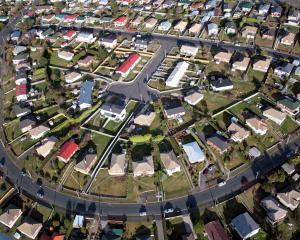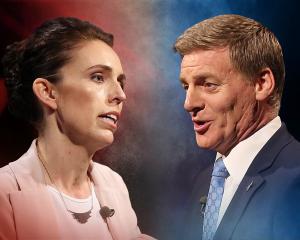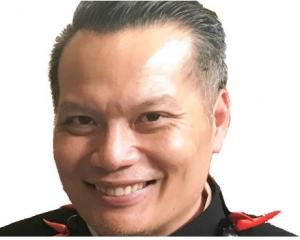
It is pitifully short of facts and Maori plight analysis, but replete with platitudes, truisms and declarations of the obvious.
The Report of the task force on Whanau Centred-Initiatives - to give it its full name - is also one of the more irrelevant Government-instigated documents of recent times.
National and Maori Party ministers have been working on Whanau Ora for the past 18 months.
Decisions surrounding the programme's establishment have been made independently of the task force's work, which anyway has proved to be next to useless in detailing how Whanau Ora might work on a day-to-day basis.
The report's value would seem to be in serving up the kind of language its Maori audience wants to hear.
Reading between the lines of the 71 pages, its significance becomes more obvious.
The report amounts to a de facto Treaty claim for a big chunk of the country's social services - a claim the National Party has by and large accepted partly to keep the Maori Party happy and partly because National believes in devolving the running of social services to non-government organisations like John Tamihere's Waipareira Trust.
The quid pro quo is that about 70 years after the introduction of the welfare state, Maori can finally do welfare their own way.
It was not surprising then that there was a mood of jubilation at Thursday's function at Te Puni Kokiri (the Ministry of Maori Development) marking the release of the document.
There has not been much for the Maori Party to smile about recently.
But the party's MPs were beaming uncontrollably.
Amidst it all were Tariana Turia and Bill English seated alongside one another in deep armchairs which made them look enthroned as an unlikely coupling of queen and king.
For Turia, Thursday had been a long time coming.
That it was also her birthday must have seemed incidental.
While the Maori Party's very existence might be down to the fight for ownership rights to portions of the foreshore and seabed, Whanau Ora will be of far greater relevance to Maori in their everyday lives.
This is what Turia has long battled for and now won.
Whanau Ora will see struggling and dysfunctional families come under the watch of Whanau Ora providers who will oversee and co-ordinate assistance from state agencies in a cohesive, holistic fashion.
It is a "one-stop shop" approach which is a radical shift away from state agencies operating within their own confines and dealing with family members as individuals in isolation rather than the full whanau.
It seems so sensible that you might wonder why it has not been tried before.
The answer is: it has.
By the time it left office, Labour was spending about $110 million a year on policies to "strengthen" families.
It was also intent on providing even "more intensive, co-ordinated support" for what it termed "vulnerable families".
The difference between that and Whanau Ora is the latter puts whanau at the core of what is going on and builds support structures around them, rather than, as has long been the case, structures being built top-down and imposed on those in need, who then have to navigate their way from one institution to another to get what they are entitled to.
While the previous government had begun to break down this structurally-induced bureaucratic inertia, the current one has been less patient about the time is taking, simply because it does not have the money Labour had.
National wants to know what it is getting in terms of concrete results from the hundreds of millions spent on helping families.
But there is no across-agency data or location-specific data.
The lack of information has induced a view in National that there would be no harm in spending some of that money on Whanau Ora because results could not be any worse than is already the case.
The problem is: nurse-maiding dysfunctional families is prohibitively expensive.
How much money Turia, wearing the new title of Whanau Ora minister has actually extracted from the finance minister will not be known until closer to the Budget.
The other question is how much will be swallowed up in the administration of what will be a complex scheme, which in parts of the country lacking iwi-based social service organisations could result in a new tier of frontline welfare workers.
That begs the question: what happens to the ones already supposedly doing the job?Mr English has brushed that not-small matter aside, saying the fate of existing staff in social service agencies is tied up with ongoing state sector restructuring.
While National's pragmatism might suggest otherwise, Whanau Ora is not entirely compatible with the governing party's ideology.
On the one hand Whanau Ora is highly interventionist - nanny state in drag, if you like.
On the other hand, its notions of "empowerment" and "self-management" have a "pull-yourself-up-by-the-bootstraps" ring of self-reliance about them.
It is this odd mixture of the far left and the far right which had Mr English, at the launch as Acting Prime Minister, searching for every reason to embrace Whanau Ora, while at the same time trying to keep healthy distance between National and the scheme.
Whanau Ora would seem to fit the self-help ethic running through the tougher regime for those on benefits announced by Social Development Minister Paula Bennett two weeks ago.
At the same time, cutting someone's benefit might be at complete odds with what the Whanau Ora provider is recommending for assistance.
National's reluctance to get too chummy with the Maori Party's new toy stretches beyond ideological factors.
Specific programmes run by and for Maori have had a habit of backfiring on their creators - as Labour found with Maori employment schemes in the 1980s.
As Labour also found with "Closing the Gaps", it does not take much by the way of accusations that Maori are being unduly favoured in terms of assistance for ideals to wilt.
National's prime worry, however, is service provider management capability.
It does not want to see front-page headlines like this week's revealing unaccounted spending of more than $500,000 by a Maori health provider.
That is why National rejected the task force's recommendation Whanau Ora be administered by a new trust one step removed from the Government.
National has opted to keep oversight of Whanau Ora within the core public service by handing the task to Te Puni Kokiri.
Even then, there are question marks over that ministry's capacity to maintain effective control over a such a sprawling programme which will also see many decisions made at a local level.
In order to try to head off disasters before they happen, a ministerial group has been set up chaired by Turia, but which includes National heavy-hitters like Mr English, Tony Ryall and Simon Power.
The slow start-up in Whanau Ora probably means major glitches are unlikely to occur this side of the next election.
National can relax its guard to some degree.
But not totally.
Taking precautions is extremely wise.
• John Armstrong is The New Zealand Herald Political Correspondent.











